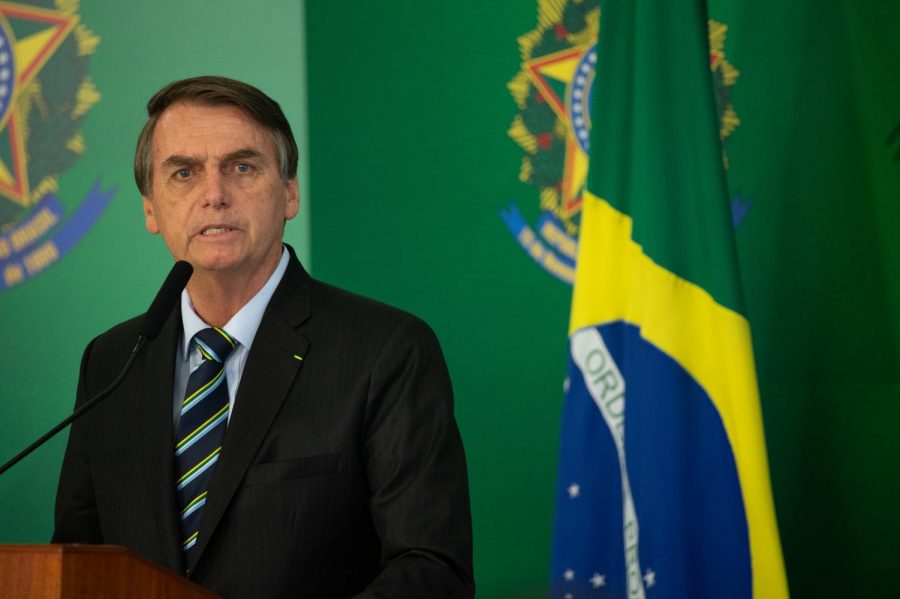Researchers determine Brazilian right-wing WhatsApp users are more active and effective
(Andressa Anholete/Getty Images/TNS)
Far-right candidate Jair Bolsonaro was elected to Brazil’s presidency in 2018. Northwestern researchers have determined that right-wing groups on WhatsApp contributed to his election.
August 29, 2019
Northwestern researchers determined in a study that the prevalence of WhatsApp, a popular messaging platform, was crucial to the electoral process in Brazil’s 2018 presidential election — in which far-right candidate Jair Bolsonaro won the presidency.
According to a Northwestern News brief, computer scientists at Northwestern analyzed partisan WhatsApp groups’ activity. They found that right-wing groups shared significantly greater amounts of multimedia content, such as images and YouTube videos, than left-wing groups.
McCormick Prof. Larry Birnbaum, the study’s senior author, and Victor Bursztyn, a doctoral student at Northwestern and the paper’s first author, followed 232 partisan groups for two months in 2018. Collecting 2.8 million messages from more than 45,000 users, they created a data set with 3.5 times as many messages and 2.4 times as many users than the largest competing dataset to date.
Brazil is the second-largest WhatsApp market in the world, with more than 120 million users. WhatsApp serves as a multi-use platform on which Brazilians message, chat in groups, and consume news. Due to WhatsApp’s maximum capacity of 256 members for public and private group chats, groups can become active social spaces.
The research team found that right-wing groups shared 5.5 times as many messages as left-wing groups, and that 46.5 percent of right-wing messages included multimedia — compared to 30 percent of left-wing messages. Due to the power of multimedia, the increased amount of multimedia content contributed to the effectiveness of right-wing movements — therefore enabling the election of a far-right candidate like Bolsonaro.
“It’s hard to say whether multimedia is more effective in influencing opinions, but right-wingers are more savvy in using them,” said Birnbaum. “Images are always more compelling than text.”
The researchers also discovered that Brazilian right-wing groups on WhatsApp commonly shared content from four skewed sites that spread disinformation, as determined by fact-checking websites. Comparatively, left-wing groups shared content from one skewed site.
“Data suggests that both sides consume this content, but it’s a more prevalent problem on the right,” Birnbaum said.
Burstyn will present the team’s findings at the IEEE/ACM International Conference on Advances in Social Networks Analysis and Mining in Vancouver, Canada on August 30.
Email: andreabian2022@u.northwestern.edu
Twitter: @andreabian_



